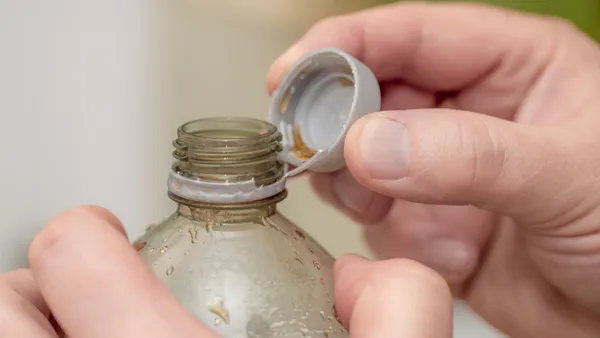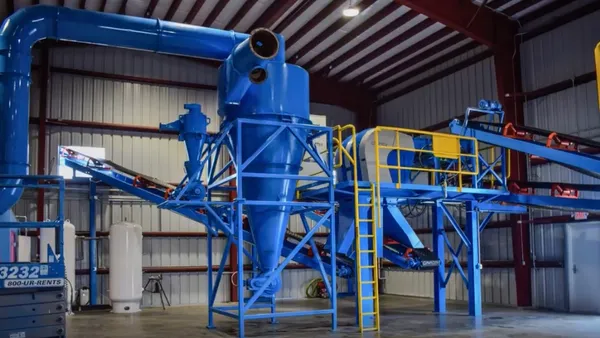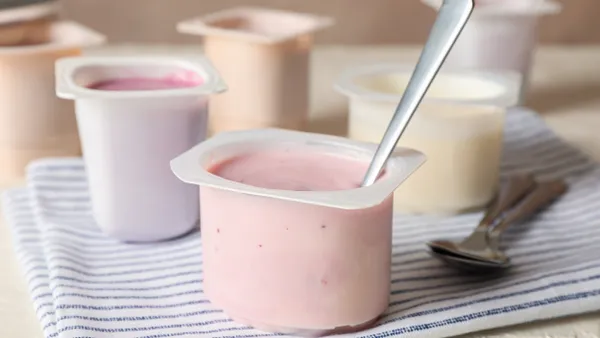Dive Brief:
- Materials Recovery for the Future (MRFF), a consortium of consumer goods manufacturers and industry groups, has launched a pilot program to recycle flexible plastic packaging. The project seeks to demonstrate the technical and economic feasibility of recycling films, wraps, bags and pouches collected from single-stream curbside recycling.
- The project is being pursued in partnership with J.P. Mascaro & Sons Inc. at its TotalRecycle materials recovery facility in Berks County, Pennsylvania. It’s expected to generate data that will help inform municipalities and the industry on how to recycle this material, which is increasingly being used to package consumer products.
- Van Dyk Recycling Solutions will provide special sorting equipment, including advanced optical sorters, to help separate a "new generation bale" at the Mascaro facility. The two-year pilot is to begin in late 2018 with equipment installation and material will be accepted in curbside carts following internal testing.
Dive Insight:
The MRFF project has continued to gain high-profile support since its launch in 2016, and this pilot announcement has been awaited with great curiosity. Members include many of the largest trade associations and manufacturers in the plastics sector, all of whom have a vested interest in proving their products can be recycled in the face of growing public pressure.
The pilot program comes as China continues to turn away recyclable commodities because of contamination concerns. In the press release announcing the new program, Steve Sikra, MRFF chairperson and associate director of global research and development for Procter & Gamble, said that a side benefit of the effort will be an improvement of the quality of Mascaro’s recycling streams.
According to research from Resource Recycling Systems, the consulting group working on the MRFF program, flexible plastic is the fastest-growing form of packaging, with 12 billion pounds introduced into the market for consumer use annually. The group estimates TotalRecycle will produce 3,100 tons a year of high-quality feedstock for various end markets currently being tested.
In 2016, Resource Recycling Systems released a report outlining the pathways to recycling flexible plastic packaging. In its conclusion, it noted that the initial demonstration project would produce a data set would that could be used to incent recycling of the material.
One lingering question involves end markets. Other recent flexible packaging recycling programs — as seen recently in British Columbia and Idaho — have relied on conversion into energy or fuel products.The 2016 report states that “(much) of the flexible plastic packaging stream will not be marketable to the existing plastic film market because it is made up of multi-layer, multi-resin construction.” The report continued to note that while a number of small-scale processors can blend and mold mixed resin into durable products, there is no large-scale consumer with this capability has been identified to date.












